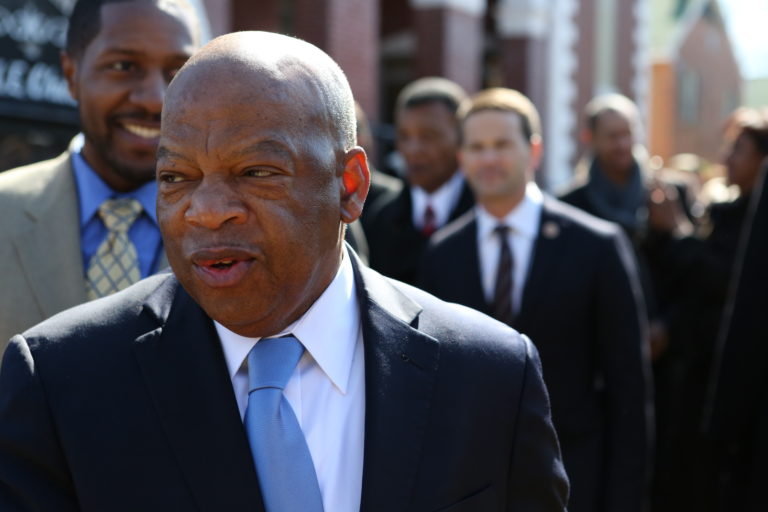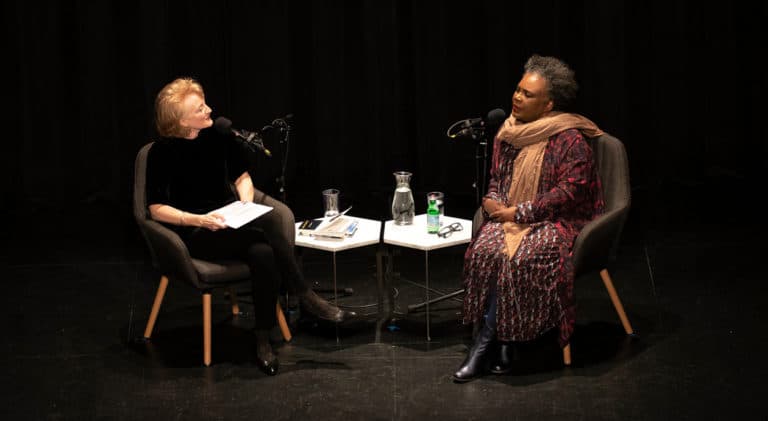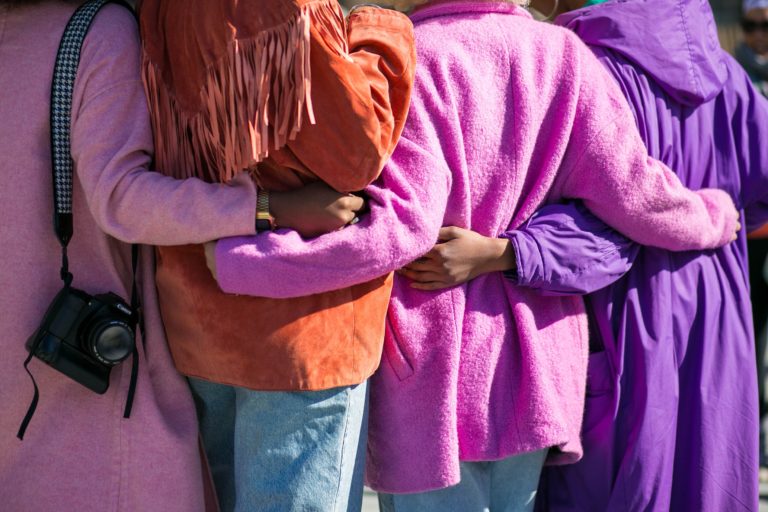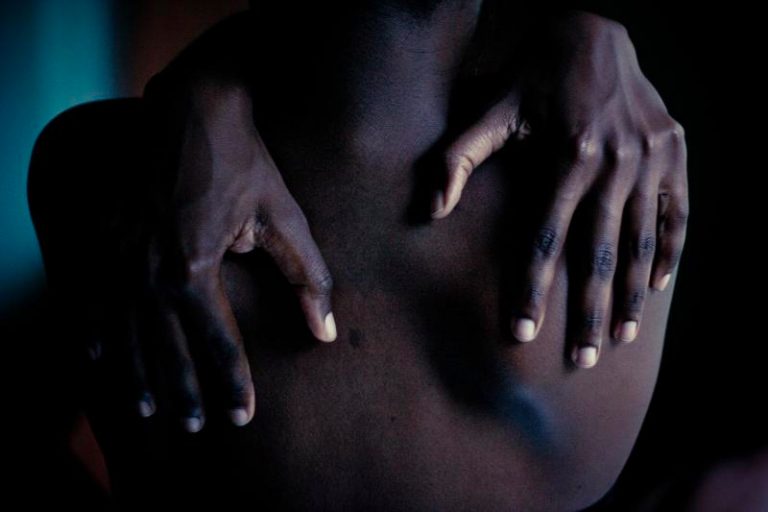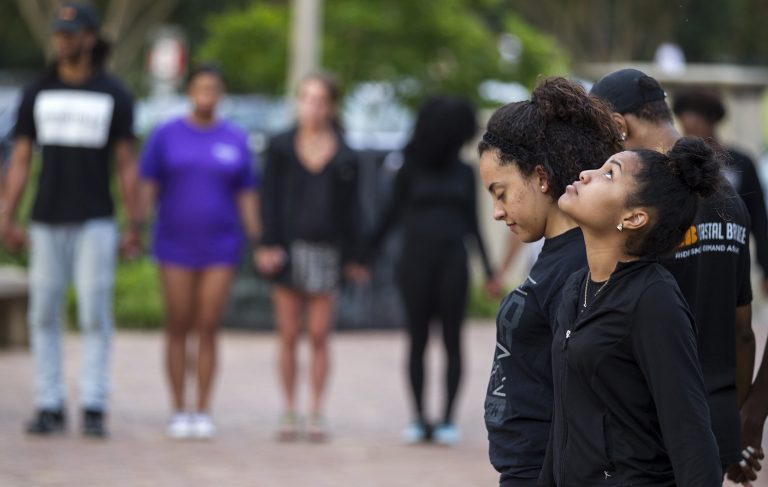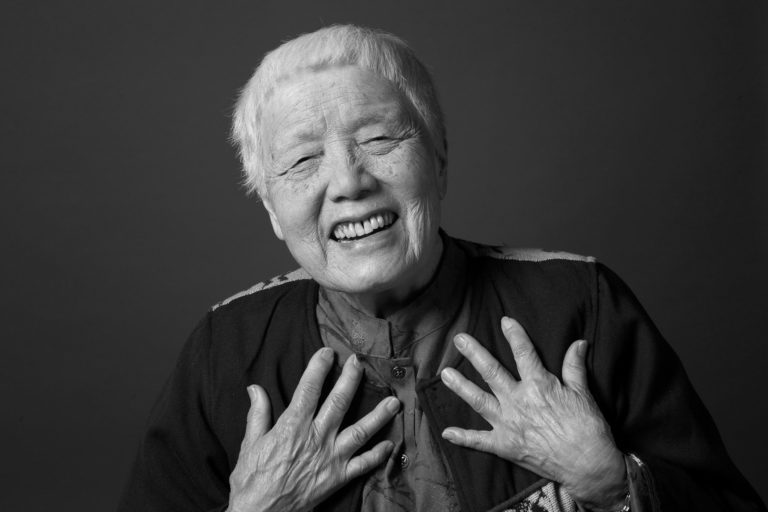An extraordinary conversation with the late congressman John Lewis, taped in Montgomery, Alabama, during a pilgrimage 50 years after the March on Washington. It offers a special look inside his wisdom, the civil rights leaders’ spiritual confrontation within themselves, and the intricate art of nonviolence as “love in action.”
Race & Healing
Featured Items
The poet, essayist, and playwright Claudia Rankine says every conversation about race doesn’t need to be about racism. But she says all of us — and especially white people — need to find a way to talk about it, even when it gets uncomfortable. Her bestselling book, Citizen: An American Lyric, catalogued the painful daily experiences of lived racism for people of color. Claudia models how it’s possible to bring that reality into the open — not to fight, but to draw closer. And she shows how we can do this with everyone, from our intimate friends to strangers on airplanes.
View
- List View
- Standard View
- Grid View
45 Results
Filters
“Race is a little bit like gravity,” john powell says: experienced by all, understood by few. He is a refreshing, redemptive thinker who counsels all kinds of people and projects on the front lines of our present racial longings. Race is relational, he reminds us. It’s as much about whiteness as about color. He takes new learnings from the science of the brain as forms of everyday power. “We don’t have to imagine doing things one at a time,” he says. “It’s not, ‘how do we get there?’ It’s, ‘how do we live?’”
“From the bottom will the genius come that makes our ability to live with each other possible. I believe that with all my heart.” These are the words of the Pulitzer Prize-winning Dominican-American writer Junot Díaz. His hope is fiercely reality-based, a product of centuries lodged in his body of African-Caribbean suffering, survival, and genius.
Black Lives Matter co-founder and artist Patrisse Cullors presents a luminous vision of the spiritual core of Black Lives Matter and a resilient world in the making. She joins Dr. Robert Ross, a physician and philanthropist on the cutting edge of learning how trauma can be healed in bodies and communities. A cross-generational reflection on evolving social change.
The civil rights lawyer Michelle Alexander is one of the people who is waking us up to history we don’t remember, and structures most of us can’t fathom intending to create. She calls the punitive culture that has emerged the “new Jim Crow,” and is making it visible in the name of a fierce hope and belief in our collective capacity to engender the transformation to which this moment is calling.
Chinese-American philosopher and civil rights legend Grace Lee Boggs turned 100 this summer. She has been at the heart and soul of a largely hidden story inside Detroit’s evolution from economic collapse to rebirth. We traveled in 2011 to meet her and her community of joyful, passionate people reimagining work, food, and the very meaning of humanity. They have lessons for us all.
Wisdom for how we can move and heal our society in our time as the Civil Rights Movement galvanized its own. Lucas Johnson is bringing the art and practice of nonviolence into a new century, for new generations. Gwendolyn Zoharah Simmons was an original Black Power feminist and a grassroots leader of the Mississippi Freedom Summer.
Imani Perry is a scholar of law, culture, race — and hip hop. She acknowledges wise voices who say that we will never get to the promised land of racial equality. She writes, “That may very well be true, but it also true that extraordinary things have happened and keep happening in our history. The question is, how do we prepare for and precipitate them?” We took her up on this emboldening question at the Chautauqua Institution, on the cusp of yet a new collective reckoning with the racial fabric of American life.
The first in a four-part series, “The American Consciousness.”
Are we in the matrix? Physicist James Gates reveals why string theory stretches our imaginations about the nature of reality. Also, how failure makes us more complete, and imagination makes us more knowledgeable.
For Black History Month: a MacArthur “genius” who’s unearthing an especially painful chapter of the American experience — the intersecting history of African-Americans and Native Americans, and the little-known narratives that Cherokee landowners held black slaves. Even with history this difficult, Tiya Miles shows us the possibility of stretching the canvas of the past wide enough to hold both hard truths and healing.
The Pause
Join our constellation of listening and living.
The Pause is a monthly Saturday morning companion to all things On Being, with heads-up on new episodes, special offerings, event invitations, recommendations, and reflections from Krista all year round.
Search results for “”
View
- List View
- Standard View
- Grid View
Filters
